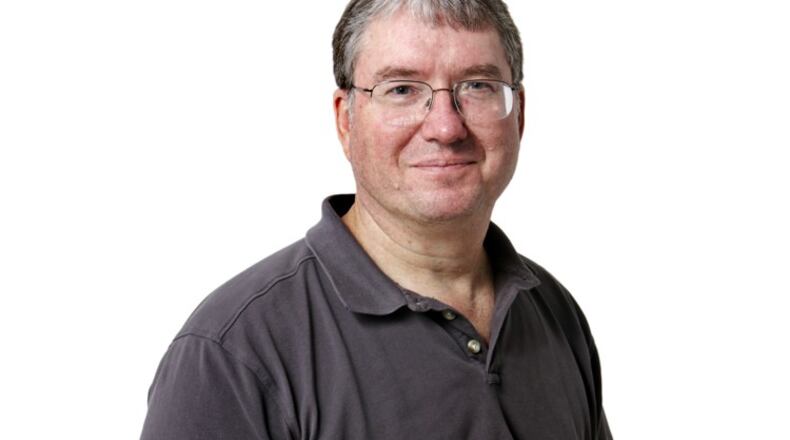MORE FROM TOM STAFFORD
North High grad photographs the world, new film looks at Guatemala
Springfield community garden provides lessons for amateur gardeners
They have a racing team, a driver and a logo. It’s all fake (except the fun).
Familiar, self-effacing, funny and an unrepentant Philadelphia Phillies fan, the user-friendly founder of Jewish Sacred Aging was in town to open the minds, raise the spirits and encourage those of us in our senior years to live fully.
Citing the fact that 10,000 Baby Boomers are turning 65 each day, Address argued that we’re in the midst of a “great longevity revolution” never before experienced, one that will reshape society and raise fundamental challenges and opportunities.
His appearance was part of what is hoped will become an annual event about aging well sponsored by local Episcopal, Lutheran, Methodist, Presbyterian, Catholic and interfaith groups. Address described the fundamental spiritual challenge in terms understandable to every human spirit.
To establish the fundamental plot line of older age, Address showed a one-frame Peanuts cartoon in which Charlie Brown and Snoopy are looking into the sunset from a dock. Charlie Brown says, “Someday, we will all die.” Snoopy then replies: “True, but on all the other days, we will not.”
“The spiritual question (of older age), I submit to you, is ‘What do we do with the time we have left? What do we do with it?’ That’s really at the heart of everything.”
In a culture that worships youth and has medicalized death Address said “No matter how much we pray or how much time we spend at the gym, we can’t control two wildcards: The wildcard of time and the wildcard of health.”
We still can choose healthier attitudes toward both body and spirit that can keep us moving forward, he said.
One is a healthier attitude toward taking care of our bodies. To have been created in the image of God, as Jewish and Christian scriptures say, makes the body worth respecting not based on the reflection in a mirror , but because the body itself is “a reflection of something sacred.”
Address noted that with some seniors experiencing 30 years or more in retirement, and said advice to live by is contained in Genesis chapter 12: “Go from your country, your people, your father’s household to a place I will show you.”
Aging, the passage can be read to mean, is not merely a continuation of life as it has been but an exploration of new and sometimes unfamiliar territory.
“You can sit in a corner and wait, or you can go out and experience this gift we have been given,” Address said. Those who merely sit often find themselves in “the Land of Woulda-Coulda-Shoulda,” Address said, a land filled with regrets of what life has not offered rather than embracing what life continues to offer.
He said the additional time provided by longer lives can allow us to get to know parts of ourselves we have never explored; express and explore thoughts we have had but never attended to; and bring into the light aspects of ourselves that we have kept in the shadows.
Aging does have its challenges, he said, and physical limitations can require us to adapt. This involves mimicking a trapeze artist by “holding on and letting go” of things, Address said - holding on to those things that sustain us and letting go of others.
For seniors who outlive friends and even families, reaching out to create new friendships and connection is critical, he said. He said everyone who has a shrinking circle of friends should work hard to connect to new ones to avoid being caught in one of the potential pitfalls of longer lives: A growing epidemic of isolation.
“Being isolated from other people shortens lives, raises the possibility of mental illness and leads sometimes to self-destructive behavior,” he said.
He said three of the questions that are at the heart of every religion come into greater focus for many seniors: Why was I born? Why must I die? Why am I here?
In lives that until older age are lived looking to the future, he said, the final years offer a chance to looking at life from a different perspective, one that considers our legacies. Attention to how we want others to remember us or what wisdom we would like to pass on can help bring a new sense of direction to older age.
He also had a crucial piece of advice to what people should be doing as all this unfolds.
“Most of all, love,” Address said, using love as a verb, an action word.
“In the end, we all seek the most basic need of every single person in this room. And it’s not for fame, and it’s not for power, and it’s not for prestige. What we really crave is to love and be loved.”
For while Charlie Brown is right that a day when we may not be able to do that, Snoopy rightly points out that on all other days, we will.
(To sample the rich supply of material at Jewish Sacred Aging, go to jewishsacredaging.com)
About the Author
